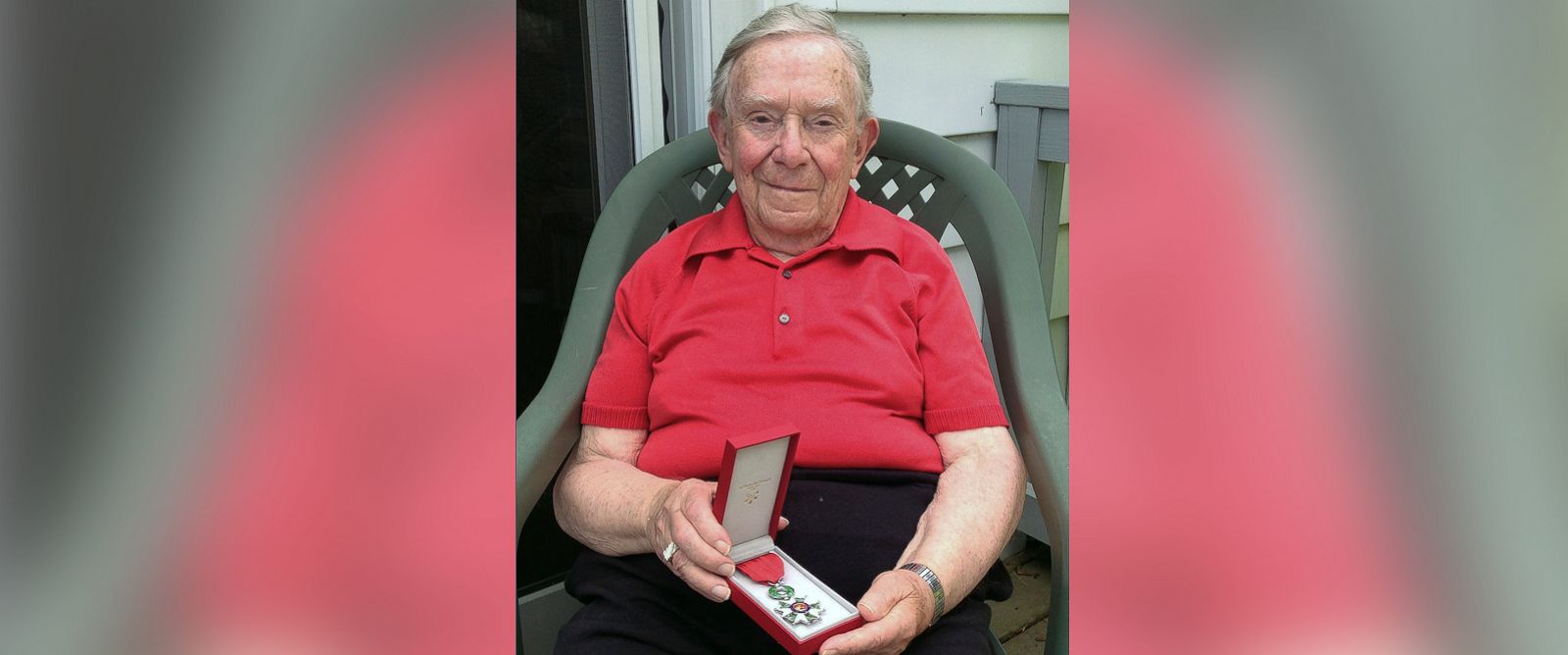WWII Air Gunner From Montpelier Gets France’s Top Honor

When James Facos was squeezed into the ball turret of a B-17 Flying Fortress, using the two 50-caliber machine guns on either side of him to soften up German air defenses to let his plane drop its payload of bombs, he wasn't looking to get into the good graces of the French.
He and the nine other members of his bomber crew, based in England, were just trying to get through another of what would end up being 30 missions — the last on June 5, 1944, against German positions in occupied Normandy, paving the way for the Allied invasion that would begin the next day.
But when he opened his mail at his Montpelier, Vermont, home one day last week, the now 91-year-old Facos found a certificate showing that French President Francois Hollande had installed him as a chevalier — a knight — in that country's Legion of Honor.
His reaction to the news? "Startled… I know the value of the medal. It's one of the highest honors France has to offer."
The Army Air Corps had awarded him the Distinguished Flying Cross at 19, but as for this new honor, "I was caught by it," Facos said. "To be a chevalier — a chevalier you know is a knight. So I'm recognized as a knight," he said, a bit of wonder in his voice.
The award was first given by Napoleon Bonaparte in 1802. But since 2004, which was the 60th anniversary of D-Day, the French have awarded it to U.S. veterans who gave distinguished service defending France against Nazi Germany in World War II.
In a letter notifying Facos that he had been selected for the honor, Valery Freland, France's consul general in Boston, wrote that the award "is a sign of France's infinite gratitude and appreciation for your personal and precious contribution to the United States' decisive role in the liberation of our country in World War II."
The job of ball turret gunner was not for the faint of heart.
The ball turret hung from the B-17's s underbelly, without enough room in the spinning, tilting sphere for a parachute. If the plane were shot down, the gunner had to try to scramble out of the turret to get a parachute.
"I never wore a 'chute during combat, so that made it more interesting," he said, adding that trips to the bathroom during a nine- or 10-hour flight over the continent and back to England wasn't possible.
"You went before you got in (the turret) and then, that was it," Facos said.
Born in Lawrence, Massachusetts, in 1924 to a Greek immigrant father and Irish mother and raised in Springfield, Facos worked as a bookkeeper for a time after the war and later got a bachelor's and master's degree. He taught English for decades at Vermont College in Montpelier, which has been absorbed into Norwich University in nearby Northfield. He's a published novelist, playwright and poet.
His son, Montpelier Police Chief Tony Facos, said in an interview that his father didn't talk much about the war during the time the future chief and his two sisters were growing up in Montpelier.
"I had to pry stuff out of him. He didn't want to talk about it. He wasn't even a big fan of me playing with guns or toy soldiers," said the chief, now 51. He added he was proud of his dad, and called the new recognition "kind of cool."
Even now, the elder Facos is matter-of-fact about the risks he took as a 19-year-old all those decades ago.
"You're aware of death. But the idea is that there are things that are much more important than death," he said. "Death is not important; it's what you do in your time that counts."
Политика конфиденциальности | Правила пользования сайтом







